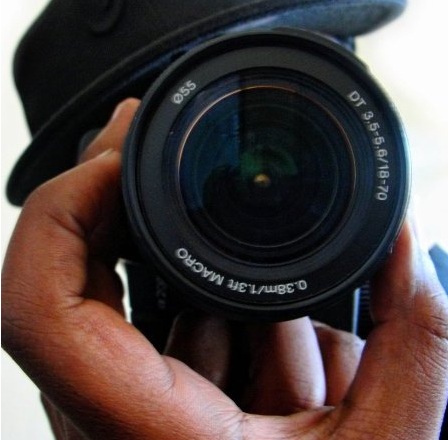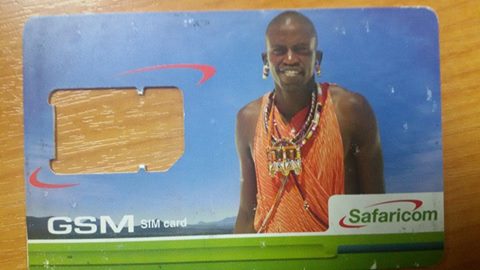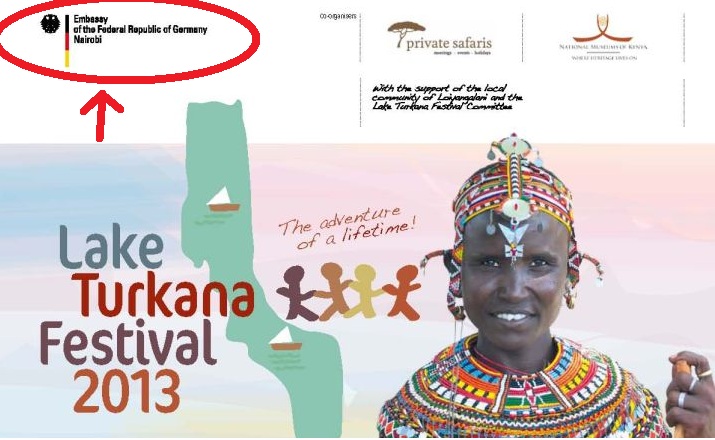New Cases to Test the Protection of Image Rights: Microsoft, Safaricom and German Embassy in Kenya
- Victor Nzomo |
- December 10, 2014 |
- CIPIT Insights

‘Image rights’ generally refer to an individual’s proprietary right in their personality and the right to prevent unauthorised use of their name or image or a style associated with them. In a previous blogpost here, we have discussed the commercial appropriation or exploitation of a person’s identity and associated images as a commercially valuable asset, particularly for individuals such as actors, musicians and athletes who commercialise their images in association with the promotion of products or services.
The protection of the image of an individual has increased over the years in many jurisdictions, either through case law or through limited inclusion in other Intellectual Property (“IP”) laws such as the Copyright Act in some jurisdiction. However, with the exception of Guernsey, no legislation exists anywhere in the world that is exclusively drafted for the protection of all aspects of someone’s image. In light of this gap, the protection of image rights remains largely a matter of contractual and/or constitutional interpretation, especially in Kenya. Therefore, it follows that disputes relating to the protection of image rights in Kenya may require some ‘judicial law-making’, as it were.
This year, there have been three cases relating to image rights that have arisen and received media attention in Kenya, namely Suzie Wokabi v. Microsoft; Kitosiosio Ole Kutuk v. Safaricom; Tealaso Lepalat v. the German Embassy in Kenya. No rulings and/or judgments have been reported in these cases thus far therefore this blogpost merely highlights the facts and issues presently in the public domain with a view to illustrate some of the challenges in protection of image rights.
In the Suzie Wokabi v. Microsoft case, media reports indicate that Wokabi accuses Microsoft East Africa of misappropriating images of her hands and her son’s foot and using them for billboard advertising of Microsoft products without her consent. According to the media, Wokabi was approached by Muthoni Njomba, a makeup artist and entrepreneur who asked whether she could use Wokabi and her son as models for her artwork. Njomba then got a professional photographer who took photos of Wokabi’s hands and her son’s foot.
Thereafter Wokabi claims she was “shocked” when her husband told her that he had seen the same photo on a Microsoft billboard accompanied by the words “Art Deeper with Windows 8”. Njomba in a media interview reportedly admits that she approached Wokabi but denies the allegations that she sold the photos to Microsoft claiming that the photos belonged to the photographer who had the rights to do whatever he wanted with the photos.
Wokabi has since reportedly gone to court to seek “a declaration that her constitutional right to property was violated by Microsoft, an order for compensation for general damages and compensation for being used as models, taking into account her celebrity status, recognisability and reputation”.

In the Kitosiosio Ole Kutuk v. Safaricom case, it is reported that telecommunications giant Safaricom misappropriated and used a photograph of maasai moran on its GSM Sim Cards. John Ole Muli, the brother of the maasai moran discovered his brother’s photo on the Sim Cards while in Loitokitok town where the the Sim cards were being sold. The maasai moran in question, Kitosiosio Ole Kutuk claimed that the mobile communication service provider did not seek his permission before the photograph was used in the GSM Sim Cards being sold countrywide.
Kutuk therefore sued Safaricom for using his image without his permission or signed contract and it is reported that High Court Justice David Onyancha has heard from Kutuk’s lawyers that there was neither a contractual agreement was entered between Kutuk and Safaricom nor any compensation paid to Kutuk.

In the case of Tealaso Lepalat v. the German Embassy, it is reported that the German Embassy in Kenya was a co-sponsor in the Lake Turkana Cultural Festival and that a photo of Mrs Lepalat was allegedly taken and used by the Embassy to promote the Festival. As a result of the photo being taken and used, Mrs Lepalat’s her husband physically assaulted and divorced her for not consulting him before allowing use of her photo to promote the event. Mrs Lepalat also claimed that she has since been cast out of her village because she failed to seek the consent of her husband and elders before having the photograph taken. Mrs Lepalat maintains that she never authorized any person to take and use her photo in connection with the event.
The photograph at the centre of the dispute has since 2012 been used to promote the Lake Turkana Festival, held in Turkana’s Loiyangalani Village every year.
Mrs Lepalat, supported by her brother Gideon Lepalo, has taken the matter to court and is seeking compensation from the German Embassy for her physical and emotional damages she has suffered.
However, the Attorney-General of the Republic of Kenya, who was enjoined in the suit as an interested party, has reportedly told the court that the German Embassy can only be sued if the Federal Republic of Germany waives diplomatic immunity it enjoys in Kenya under the Privileges and Immunity Act. The A-G further contended that that the court has no jurisdiction to hear the matter, as it is barred from hearing the dispute by the Privileges and Immunity Act alongside international laws that protect foreign diplomats.
Therefore the AG asked the court to dismiss the proceedings against the German Government and its Embassy in Kenya.
In rebuttal to the AG’s arguments, Lepalat insists that the the German Embassy waived its immunity when it violated her rights by using the photograph without considering the Samburu community’s beliefs. Lepalat and her family further argue that diplomatic immunity, as per Kenyan laws, does not cover professional or commercial activity. In this connection, Lepalat contends that the Lake Turkana Festival is a commercial activity for which the German Embassy cannot invoke immunity. In addition, the use of her photograph without her consent was not the embassy’s official duty hence cannot be covered by diplomatic immunity.
As these cases proceed to full hearing and determination, this blogger will be keenly following the developments.
